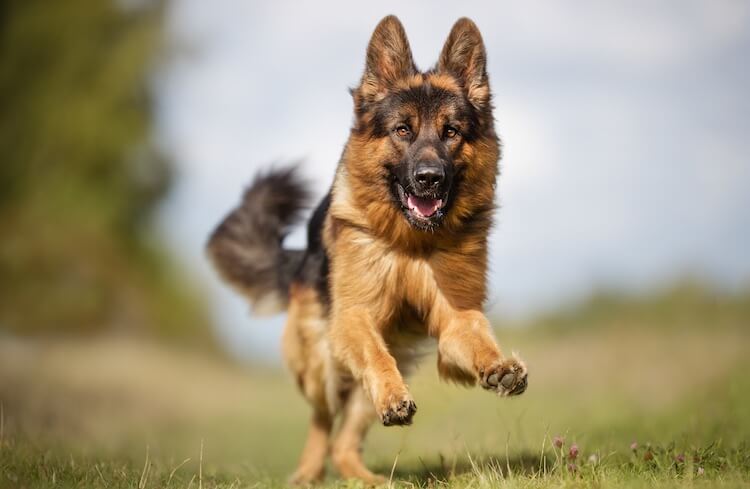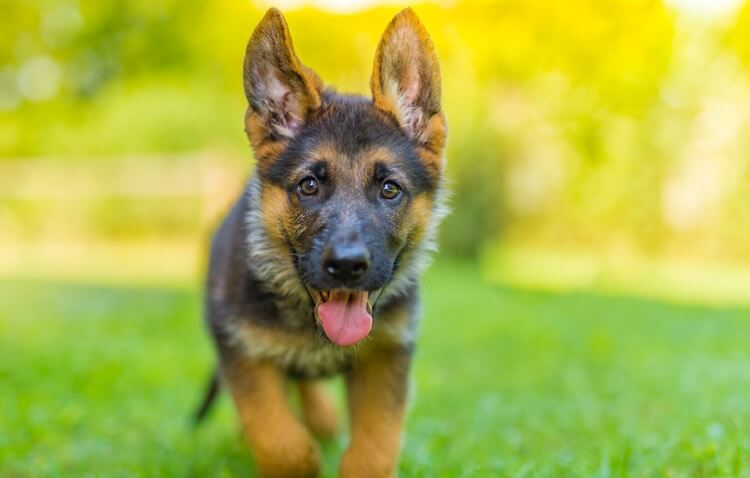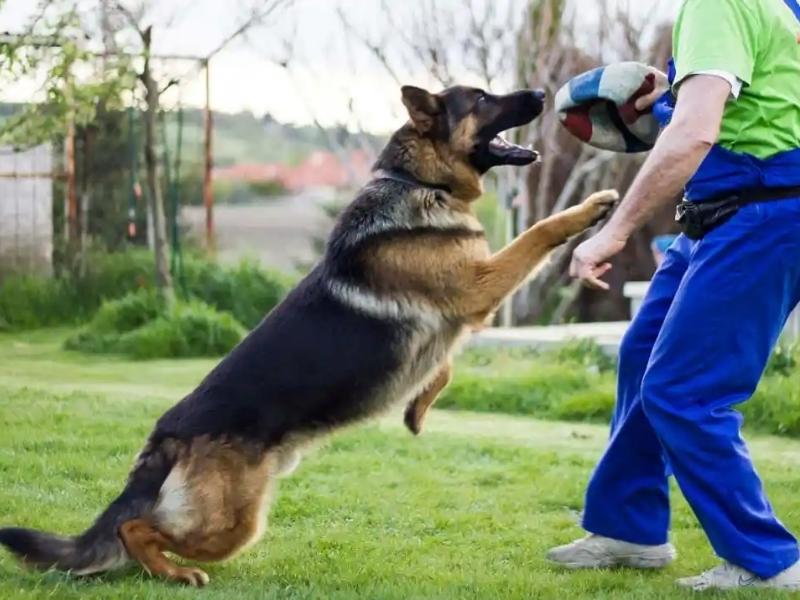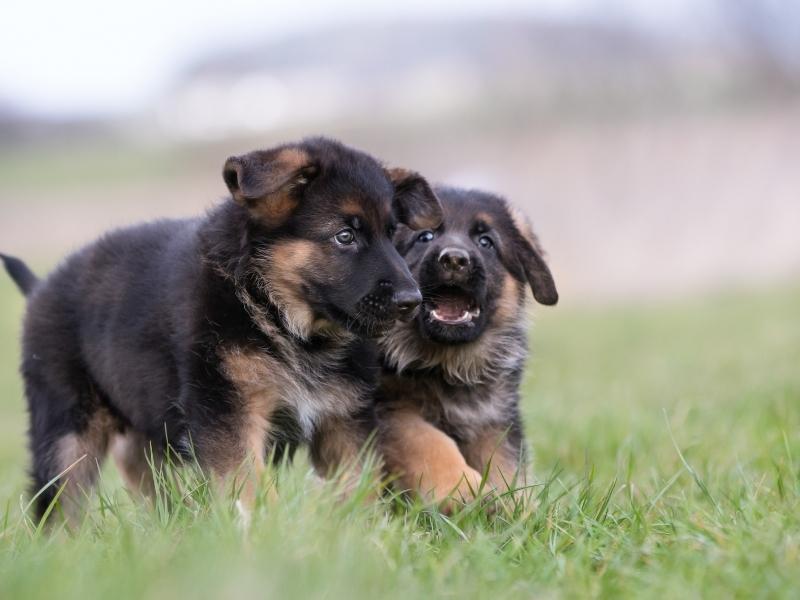Germen Shepherd- Dog
Germen Shepherd- Dog:
German shepherds are among the most versatile and intelligent dogs, excelling in many roles from family pets to police works.
German Shepherd dog, breed of working dog developed in germany from traditional herding and farm dogs. Its dense coat consists of coarse, medium-long, straight or slightly wavy outer hair and soft short inner hair. The colour ranges from white or pale Gray to black and is commonly Gray and black or black and tan. Noted for intelligence, alertness, and loyalty, the German Shepherd is used as a guide dog for the blind and as a watchdog and also serves in police and military roles.
German Shepherd Personality and Temperament

German shepherds are smart, obedient, and curious. German shepherds take longer to bond with humans than other dog breeds, but once friendships are forged, the dogs are highly loyal to their owners.
The German shepherd is a sensitive breed that hates being left alone. When nervous or upset, German shepherds display destructive behaviours, such as scratching and biting furniture.
German shepherds are vocal dogs with a loud, ferocious bark, so they’re not an ideal pet for families with babies or nervous children.
German shepherds are best suited to families with teenage children or couples who are able to spend a lot of time with their pet.
Taking Care of a German Shepherd Dog
 German shepherds are easy to care for, but the dogs require a lot of attention and are highly active.
German shepherds are easy to care for, but the dogs require a lot of attention and are highly active.
Feed your German shepherd a healthy, high-protein diet and take the dog for long walks.
Regularly brush your German shepherd’s teeth and coat, and contact your veterinarian if you notice anything unusual, like missing fur or bleeding gums.
Food Needs
German shepherds have big appetites, requiring a daily intake of 1740–2100 calories. The average adult German shepherd requires between 2.5 and 3.5 cups of nutritious kibble every day.
Adjust portions based on the size, age, and activity level of the dog, and the calorie density of the food.
Feed German shepherds a combination of wet and dry food with the correct nutritional profile to keep the dogs healthy and free from bone growth issues.
Buy dog food designed for large breed dogs, even when feeding a German shepherd puppy.
German shepherds need to grow slowly to avoid joint problems later in life, and foods for small breed puppies are unsuitable because they’re designed to promote fast growth.
A raw food diet is a good option for German shepherds because it removes a lot of unnecessary carbohydrates and provides a high percentage of protein, vitamins, and minerals needed for healthy growth.
Grooming Needs
German shepherds have high grooming needs due to their thick double coats, but brushing an obedient German shepherd is easy. This is especially true for long-haired German Shepherd.
Brush your German shepherd three or four times per week to remove loose hairs and maintain soft, shiny fur.
To groom your German shepherd, remove the dog’s collar and run a slick brush down the dog’s back, from head to tail, in the direction that the fur grows.
Repeat until the brush is no longer picking up hair, then move onto the dog’s hips, tail, belly, and legs.
Alongside brushing, German shepherds need to be bathed once per month to thoroughly clean the fur.
Don’t bathe a German shepherd more than twice per month, as overbathing strips the natural oils from the dog’s coat.
Exercise Needs
German shepherds are active, energetic dogs that need at least two hours of exercise per day, ideally split into two or three separate walks.
Walking isn’t the only exercise you can do with a German shepherd. Because German shepherds are an intelligent breed, they’re ideal dogs for agility activities like herding and tracking.
Off-lead exercise, playtime, and training add variety to routine daily walks.
German shepherds have high exercise needs, so the dogs are best suited to homes with medium-to-large backyards rather than apartments with no backyard.
However, German shepherds can still live in apartments as long as the dogs are taken for frequent walks to prevent restlessness.
Mental Needs
The German shepherd is a smart dog that needs lots of mental stimulation throughout the day. Because German shepherds were originally bred to be working dogs, they have a lot of intelligence that should be put to use.
Mental exercise and brain games help to keep a German shepherd mentally fit. Training and playtime should be a big part of your German shepherd’s daily routine.
Toys are a good source of mental stimulation for German shepherds, especially interactive puzzle toys that present a challenge in return for a treat.
Tug toys and chew toys, flying discs, and tennis balls are also good choices for keeping a German shepherd mentally stimulated.
How to Train a German Shepherd
 Germen Shepherd trainings easy and they enjoy learning new tricks. You can train German shepherd puppies starting as young as seven weeks old.
Germen Shepherd trainings easy and they enjoy learning new tricks. You can train German shepherd puppies starting as young as seven weeks old.
Begin by teaching your German shepherd practical commands, like “sit,” “down,” and “stay,” with one-minute training sessions.
Leash train your dog as soon as possible, using treats as a reward. Toilet train your dog if wasn’t already trained as a young puppy.
When your dog is 10 weeks old, move on to more challenging commands, like “wait,” “spin,” and “bark.”
Socialize you dog by introducing it to new places and people, offering positive reinforcement for appropriate behaviour.
German shepherds forget everything they’ve learned without daily training. Stick to a daily training schedule, with positive, reward-based training.
Avoid harsh punishments, which will make your dog fearful of you.
German Shepherd Price
 German shepherds are expensive, sought-after, purebred dogs. The most expensive German shepherds are those sold by responsible breeders, who breed dogs based on good health and beautiful appearance.
German shepherds are expensive, sought-after, purebred dogs. The most expensive German shepherds are those sold by responsible breeders, who breed dogs based on good health and beautiful appearance.
German Shepherds are Suitable for:
German shepherds are suitable for families with old children or adult couples with plenty of time to dedicate to their pet.
Homes with backyards are better than apartments because German shepherds are big dogs with lots of energy.
Because German shepherds are sociable, needy dogs, they’re ideal for households where at least one person is at home most of the day.
People who are prepared to regularly groom, play with, train, and bond with their pet make good German shepherd owners.
German Shepherds are NOT Suitable for:
German shepherds are not suitable for owners who work long shifts away from home, as the dogs are known to be destructive when left alone for long periods.
German shepherds also aren’t suitable for people with mobility problems, inactive people, or people who don’t have time to exercise their dogs for at least two hours every day.
People looking for a low-commitment dog shouldn’t buy a German shepherd.
There are also a lot of germen Shepherd that might share some of your preferred German shepherd traits with other positive traits of other breeds if you think a German shepherd isn’t suitable for you.



Comments
Post a Comment